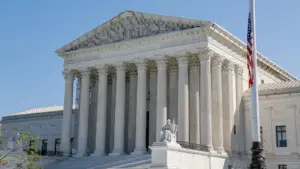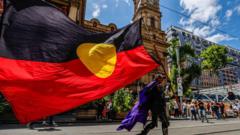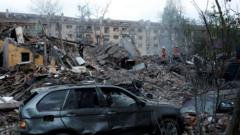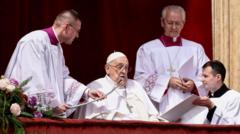With the commemoration of Auschwitz's liberation, survivors like Eva Umlauf share their harrowing experiences, emphasizing the importance of remembrance and vigilance against prejudice in today's society.
Holocaust Survivors Urge Youth to Remember Auschwitz's Lessons
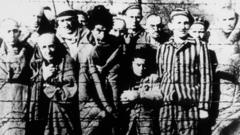
Holocaust Survivors Urge Youth to Remember Auschwitz's Lessons
As Europe grapples with rising antisemitism, Holocaust survivors implore younger generations to learn from the past to prevent history from repeating.
At a Holocaust education center in Dachau, Germany, students are confronting their nation's dark past just as the anniversary of Auschwitz's liberation approaches. Among them is Xavier, a 17-year-old who believes it's crucial for young people to understand the significance of history. “The far right is gaining support in Germany, and we need to learn from the past,” he says, reflecting a sense of urgency that resonates with many of his peers.
Melike, another student, admits her knowledge of the Holocaust was limited before visiting Dachau. The poignant discussion with survivor Eva Umlauf highlighted the importance of addressing intolerance and racism. Wearing a headscarf, Melike expressed her wish for a more inclusive dialogue. “We need to learn more about one another,” she stated, illustrating the relevance of historical lessons in combating modern prejudices.
Miguel and Ida echoed similar sentiments, warning against the resurgence of antisemitism and the dangers of Holocaust jokes proliferating online. “We’re the last generation to meet survivors, and we have to ensure everyone is informed,” urged Ida. Their earnestness reflects a hopeful recognition of the power that knowledge holds in shaping society’s future.
However, in a Europe where political polarization is increasingly evident, concerns about rising antisemitism loom large. Holocaust survivor Eva Umlauf, who was freed from Auschwitz eight decades ago and now dedicates her life to educating the youth, believes that the Holocaust stands as a dire warning against the perils of prejudice. “I want everyone to live together,” she insists.
The horrifying realities of concentration camps, including Auschwitz—where over a million lives were brutally extinguished—stand as stark reminders of humanity's capabilities for cruelty when hate prevails. Yet the memories these survivors carry remain powerful, with Eva sharing anecdotes of her identification number tattooed on her arm.
Meanwhile, the Jewish community in Germany grapples with a disturbing resurgence of antisemitism. Charlotte Knobloch, an influential figure in the Jewish community, voices her concerns over the modern climate of intolerance, recalling her own experiences witnessing the violent repression of Jews during Kristallnacht.
Reports from organizations like the EU's Fundamental Rights Agency indicate that antisemitism remains pervasive, with significant portions of the Jewish population feeling threatened in their daily lives. International responses to rising antisemitism have also emerged, as leaders like former President Biden address it as a pressing concern.
The echoes of history linger not just in words but in the very remnants of lives lost. Near the Stutthof concentration camp, a haunting collection of shoes serves as a silent testament to the atrocities suffered. Musician Grzegorz Kwiatkowski insists these artifacts beg for recognition, urging society to change morally in response to the past.
As survivors remind the world of their traumas and the importance of remembrance, this year's commemoration of Auschwitz's liberation may be among the last occasions for firsthand accounts. It poses a crucial question to younger generations: “What lessons will we carry forward, and what must we strive to never forget?”

